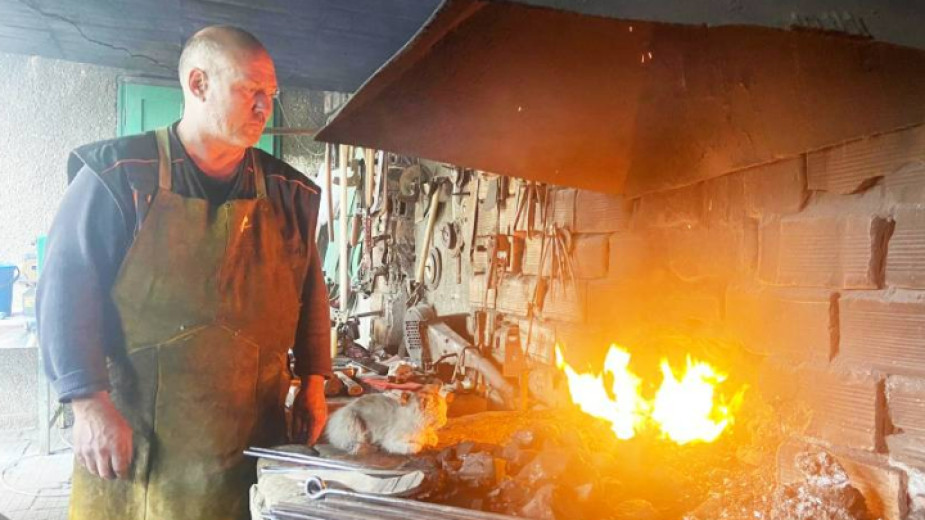 4
4
Not many have ever entered a “living and breathing” blacksmith’s shop and seen for themselves how iron is forged. In our day, the people practicing this old craft are few and far between. Still, there is one tradition that is still alive and kicking – knife-making. Wherever you may find yourself in Bulgaria, you will find remarkable master knife-makers.
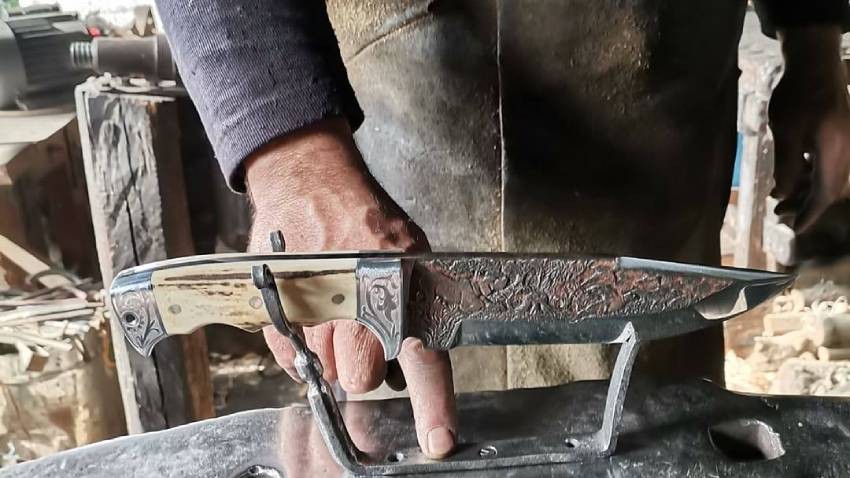
One of the most experienced and sought-after blacksmiths in Bulgaria is called Stefan Chakov, for whom making all kinds of knives is just one element in his work. He has many people coming to learn the trade from him – from Bulgaria but also from other countries. The master blacksmith lives in the town of Krun in Central Bulgaria and he says he never leaves the town where he lives or his work, but that the world comes to him.
Stefan Chakov has been a blacksmith for over 40 years and he says he learnt the trade from the old masters he met in his work in the 1980s. “Everything I do I do by hand, I don’t have a mechanical hammer or any kind of modern equipment and I work the way I have been shown by the old master blacksmiths,” says Stefan Chakov and goes on:
“I am like the village blacksmiths who repair farming tools – mattocks, hoes, picks, ploughs, anything made of metal you can think of. I don’t find it hard work, I enjoy doing it. I loveeverything that has to do with my work. It is difficult to explain, it is as if it is a calling of some kind. I remember as a kid that my friends would go out to play football, but I would play at being tinker, and I would go and watch tinkers at their trade. That was how it all began for me.”
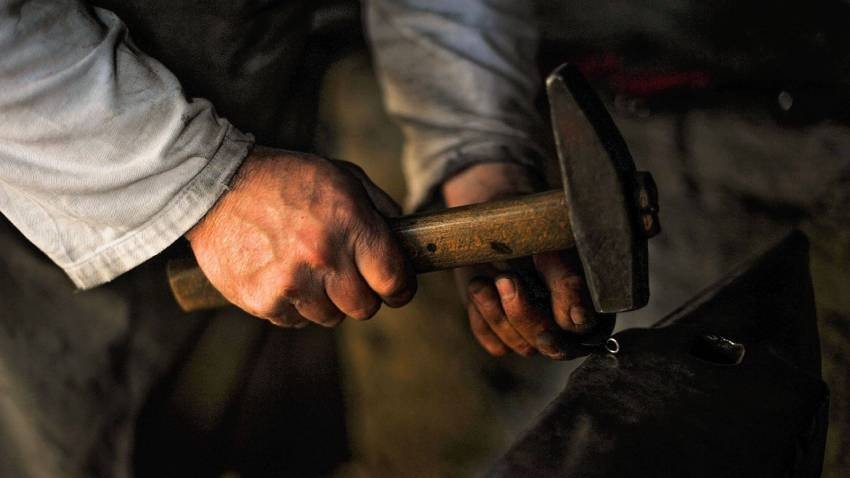
A blacksmith’s hammer is not heavy, says Stefan Chakov, but it can be if you inflict violence on the steel. That is one of the tricks of his trade – knowing how the material is going to flow every time you strike it on the anvil.
“But if there is violence, things won’t go well, that is the reason why you must get a feel for the steel, this is the kind of experience that is accumulated over the years. As they say, everything that is new is the well-forgotten old and it is my mission to pass what I have learnt from the old masters to the younger generation,” the blacksmith from Krun says and adds:
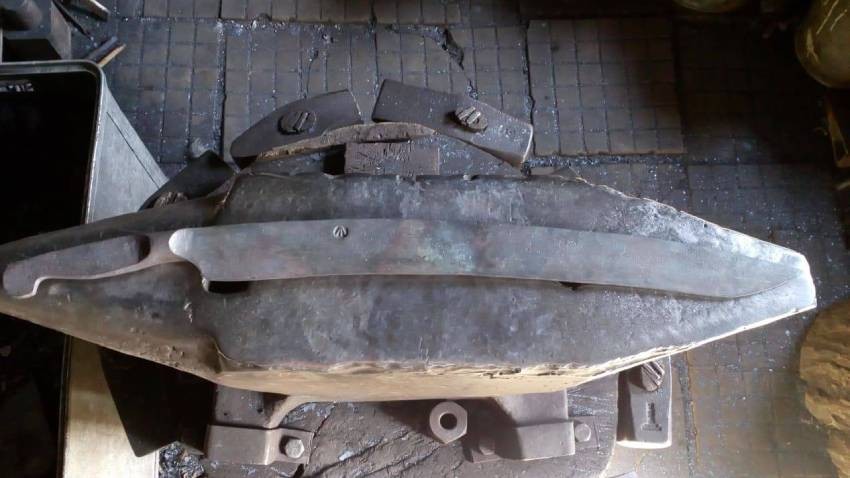
“I literally “made the last train” because the old master blacksmiths I learnt the trade from were 70 years old or more. The blacksmiths of old were kind and good people. After work they would sit by the fire, drink some wine and that was what gave them joy in life. They were people who have suffered, having lost everything in a moment – their land, their shops, they literally had their souls torn out. They even went to war, but still they remained good people.”
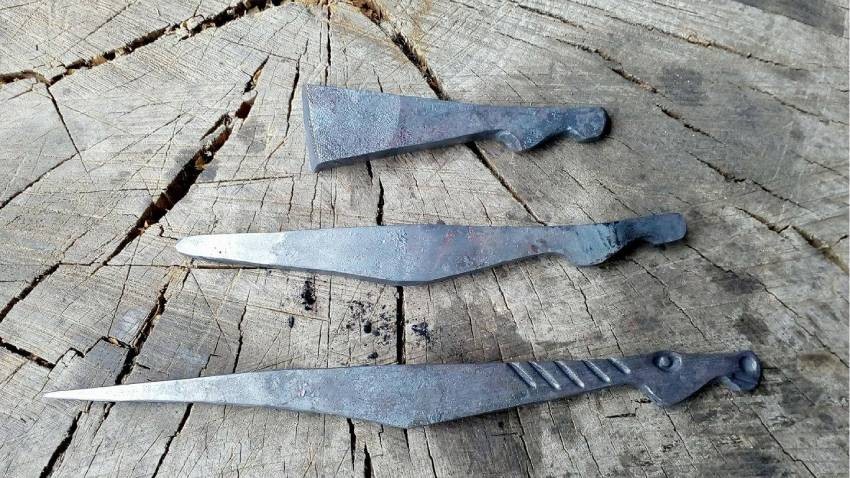
“So many people have come to the smithy,” Stefan Chakov says. “There have been people from, Japan, from France, Czechia, the Netherlands, Portugal, Croatia, and they all want to see how metal is forged because in their countries there aren’t any master blacksmiths anymore.”
“I can work all day without stopping, and I don’t get tired, I don’t want to take a rest. The smithy is for me a piece of paradise, it is where I find peace, where I feel I belong. If you are in love with your job, it isn’t hard work at all.”
Gergana Mancheva
Photos: Facebook/Stefan Chakov
The annual human rights awards Human of the Year will be presented for the seventeenth time at a ceremony today. The event takes place on the eve of International Human Rights Day - 10 December. The awards have no monetary value. Their purpose is to..
8 December is the day on which Bulgarian university students traditionally celebrate their holidays. The holiday is very popular in Bulgaria and often brings together not only current but also former students. The day was first celebrated in 1903..
Spicy means culture and Alexander Kyurkchiev - Sando, founder of a chilli pepper farm near Sofia and the first chilli pepper museum in this country, is sure of this. For the second year in a row he is organizing the Sofia Chilli Fest..

+359 2 9336 661
